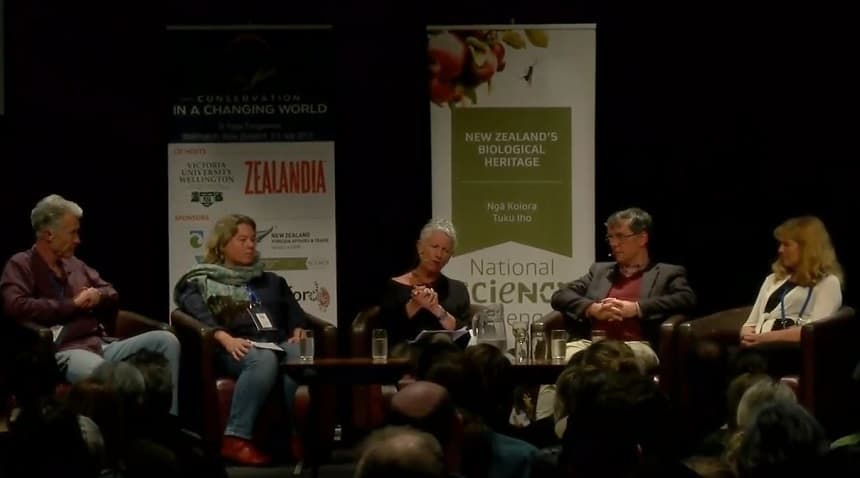However, moving any new control measures from the lab to the landscape is as much a social challenge as it is a biological challenge. Researchers need to find ways to include the public early and often in discussing predator control plans, and allow people to have a say in which methods are deployed.
In response to this need, this Bioethics Panel was co-convened by Drs Emily Parke (Philosophy) and James Russell (Biology) from the University of Auckland as part of the BioHeritage project High tech solutions to invasive mammal pest control.
The Panel brings together a wide range of academic, industry and community experts who horizon-scan the social, cultural and ethical issues around the implementation of high tech solutions to invasive mammal pest control. Membership is diverse in terms of gender and culture, and includes representatives with experience in philosophy, law, psychology, marketing, ecology, genetics, hunting, welfare and stewardship.
Read their report that summarises the issues associated with achieving a Predator Free New Zealand
Click below to listen to the panel debate the issues at Society for Conservation Biology Oceania Section’s 2018 congress:
Convenors
- Dr Emily Parke, University of Auckland
- Associate Professor James Russell, University of Auckland
Members
- Professor Doug Armstrong, Massey University
- Professor Lisa Ellis, University of Otago
- Mr Mook Hohneck, Ngati Manuhiri
- Dr Catherine Iorns, Victoria University of Wellington
- Emeritus Professor John Knight, University of Otago
- Dr Kate Littin, Ministry for Primary Industries
- Dr Edy MacDonald, Department of Conservation
- Professor James Maclaurin, University of Otago
- Mr Cam Speedy, Wildlife Management Associates
- Associate Professor Tammy Steeves, University of Canterbury
- Dr Krushil Watene, Massey University
- Dr Cilla Wehi, Manaaki Whenua
Research and Writing Assistant
- Mr Sam Woolley, University of Auckland
The work of the BioHeritage Bioethics Panel sits alongside the science advisory panel to PF2050, who at the same time are considering the biological and technical challenges in achieving a Predator Free New Zealand by 2050.
Read an article on the Panel’s work in Science.
